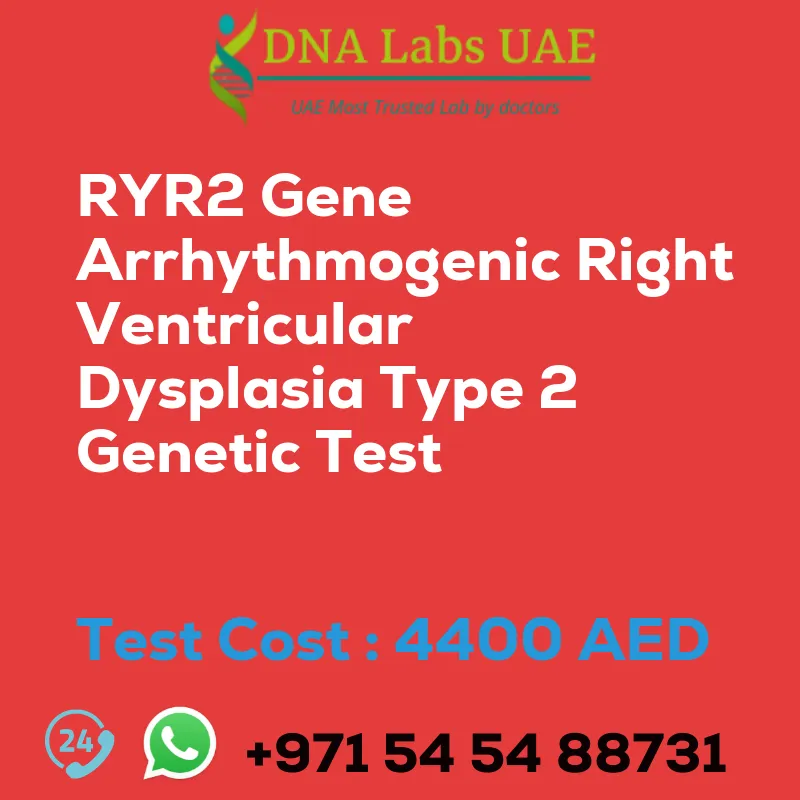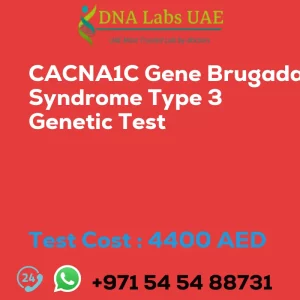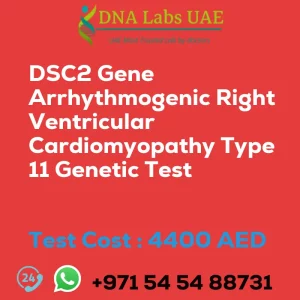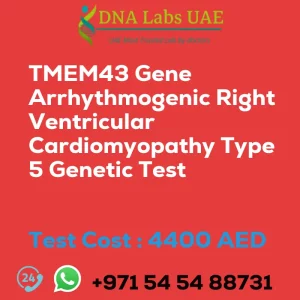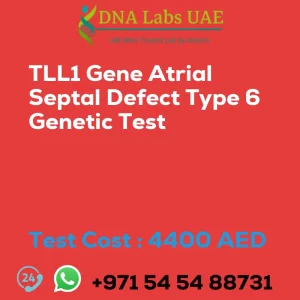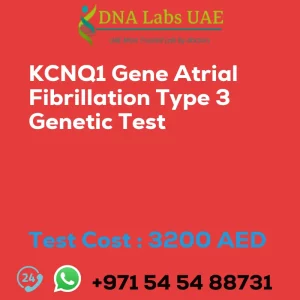RYR2 Gene Arrhythmogenic right ventricular dysplasia type 2 Genetic Test
At DNA Labs UAE, we offer the RYR2 Gene Arrhythmogenic right ventricular dysplasia type 2 Genetic Test. This test helps in diagnosing and predicting the risk of developing arrhythmogenic right ventricular dysplasia type 2 (ARVD2), a genetic condition that affects the heart muscle.
Test Components and Price
- Test Name: RYR2 Gene Arrhythmogenic right ventricular dysplasia type 2 Genetic Test
- Price: 4400.0 AED
Sample Condition and Report Delivery
The sample condition required for this test is either blood, extracted DNA, or one drop of blood on an FTA card. The report will be delivered within 3 to 4 weeks.
Method and Test Type
We use NGS (Next-Generation Sequencing) technology for this genetic test. NGS allows us to analyze multiple genes simultaneously and detect any genetic variations or mutations that may be present. This test specifically focuses on cardiovascular pneumology disorders.
Doctor and Test Department
This test is conducted by our experienced cardiologists in the Genetics department.
Pre Test Information
Prior to undergoing the RYR2 Gene Arrhythmogenic right ventricular dysplasia type 2 Genetic Test, it is important to provide the clinical history of the patient. Additionally, a genetic counseling session will be conducted to draw a pedigree chart of family members affected with the RYR2 gene. This information helps in interpreting the test results accurately.
Test Details
The RYR2 gene is associated with arrhythmogenic right ventricular dysplasia type 2 (ARVD2), a condition characterized by the replacement of normal heart muscle with fatty or fibrous tissue. This leads to abnormal heart rhythms and potentially life-threatening arrhythmias. NGS testing helps in identifying any mutations or variations in the RYR2 gene that may be responsible for the condition.
By detecting these genetic variations, the RYR2 Gene Arrhythmogenic right ventricular dysplasia type 2 Genetic Test aids in diagnosing ARVD2, predicting the risk of developing the condition, and guiding appropriate treatment and management strategies. It can also be utilized for genetic counseling and family planning purposes.
It is crucial to note that genetic testing should always be conducted under the guidance of a healthcare professional or genetic counselor. They can interpret the results accurately and provide appropriate recommendations and support.
| Test Name | RYR2 Gene Arrhythmogenic right ventricular dysplasia type 2 Genetic Test |
|---|---|
| Components | |
| Price | 4400.0 AED |
| Sample Condition | Blood or Extracted DNA or One drop Blood on FTA Card |
| Report Delivery | 3 to 4 Weeks |
| Method | NGS Technology |
| Test type | Cardiovascular Pneumology Disorders |
| Doctor | Cardiologist |
| Test Department: | Genetics |
| Pre Test Information | Clinical History of Patient who is going for RYR2 Gene Arrhythmogenic right ventricular dysplasia type 2 NGS Genetic DNA Test. A Genetic Counselling session to draw a pedigree chart of family members affected with RYR2 Gene Arrhythmogenic right ventricular dysplasia type 2 NGS Genetic DNA Test gene RYR2 |
| Test Details |
The RYR2 gene is associated with arrhythmogenic right ventricular dysplasia type 2 (ARVD2), which is a genetic condition that affects the heart muscle. ARVD2 is characterized by the replacement of normal heart muscle with fatty or fibrous tissue, leading to abnormal heart rhythms and potentially life-threatening arrhythmias. NGS (Next-Generation Sequencing) genetic testing is a method used to analyze multiple genes simultaneously and detect any genetic variations or mutations that may be present. In the case of ARVD2, NGS testing can be used to identify any mutations or variations in the RYR2 gene that may be responsible for the condition. By identifying these genetic variations, NGS testing can help in diagnosing ARVD2, predicting the risk of developing the condition, and guiding appropriate treatment and management strategies. It can also be used for genetic counseling and family planning purposes. It is important to note that genetic testing should be conducted under the guidance of a healthcare professional or genetic counselor who can interpret the results and provide appropriate recommendations and support. |

